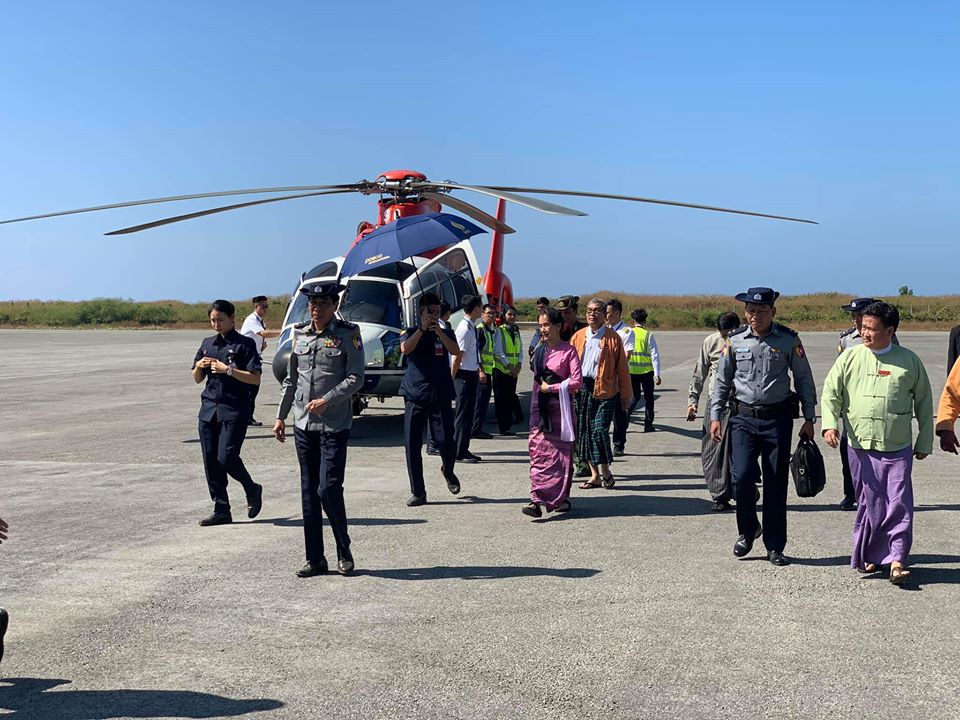
Three bomb explosions near an airport in southern Rakhine state hours before Aung San Suu Kyi arrived this morning prompted a rebel group to deny involvement, according to Myanmar Now.
No injuries have been reported in the incident on Munaung Island, where the State Counsellor attended the opening of a solar power plant despite the explosions.
A spokesman for the Arakan Army (AA), which has been battling the Myanmar military in the troubled state, said his group was not connected to the incident.
No group has yet claimed responsibility for planting the small bombs, which detonated at the side of a road, photos from local media showed.
Local people told Radio Free Asia that the bombs exploded around 6.30am near the airport and Manaung Hotel, where Rakhine chief minister Nyi Pu and other officials were staying in preparation for Suu Kyi’s visit.
Travelling in a military helicopter from the Rakhine port of Thandwe, the leader met local residents, some of who held a rally in her name as she contested charges of genocide against her country in The Hague last week.
Suu Kyi arrived back in Thandwe around noon, according to the Facebook page of the Myanmar State Counsellor’s Office.
The inauguration of the solar power plant—a collaboration between the energy ministry, the Rakhine government and South Korea’s POSCO Daewoo group—is part of Suu Kyi’s second official visit to Rakhine as the country’s de-facto leader.
Her first trip came in November 2017 amid an exodus of hundreds of thousands of Rohingya Muslims, who were driven out by a bloody military campaign.
On that one-day visit, Suu Kyi saw areas where atrocities had taken place. She met a Rohingya community near Maungdaw township, border guards on the Myanmar-Bangladesh border and an ethnic Mro village where Arakan Rohingya Salvation Army militants had murdered eight people.
The International Court of Justice is currently deciding whether protective “provisional measures” should be imposed to prevent further killings and destruction against the Rohingya in Myanmar. The court is expected to deliver its judgement within a few weeks.

